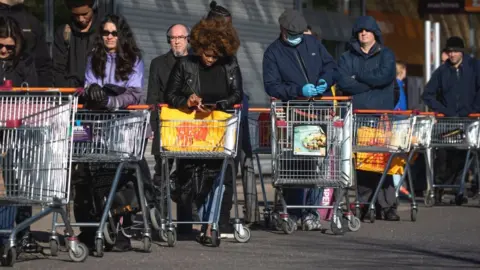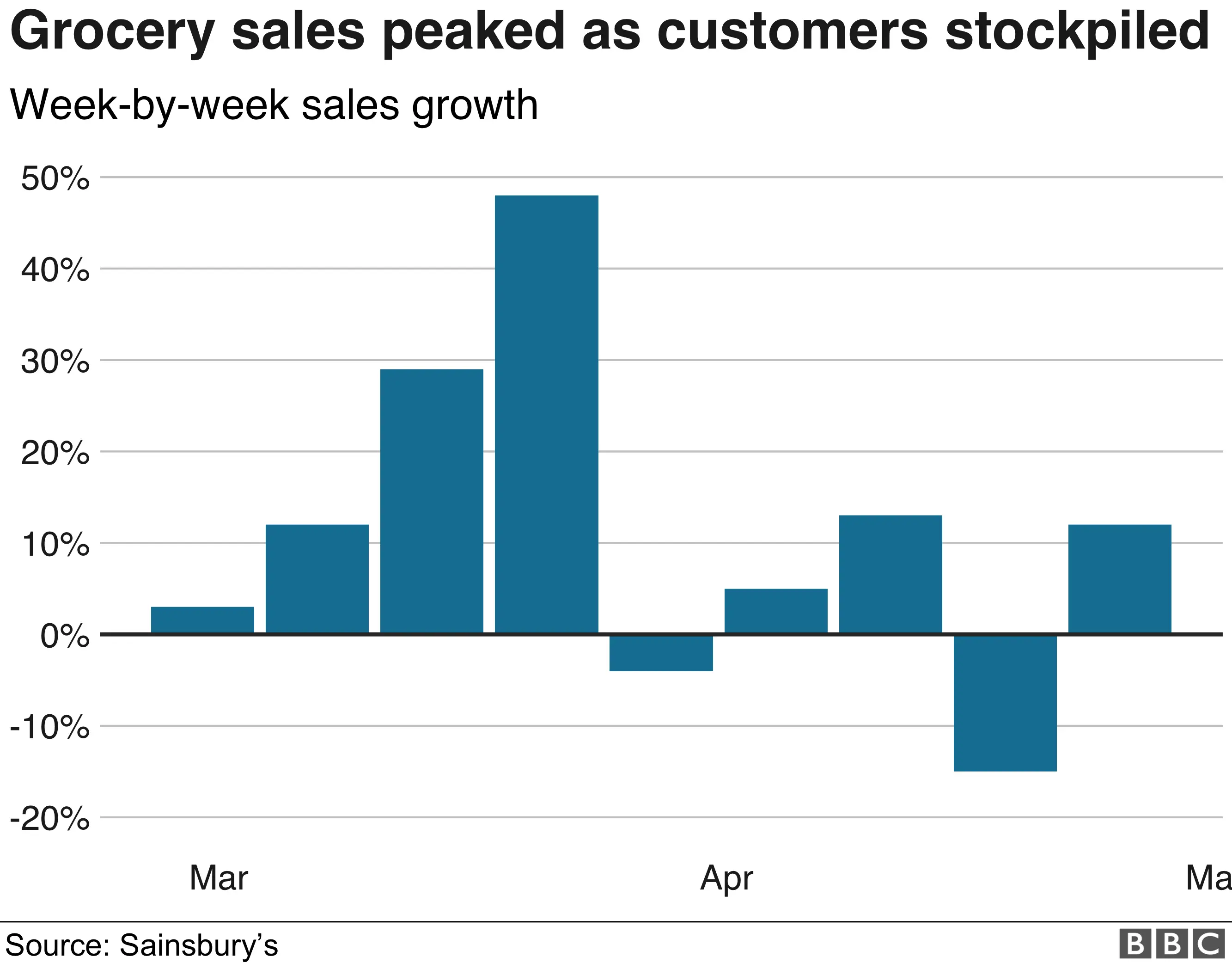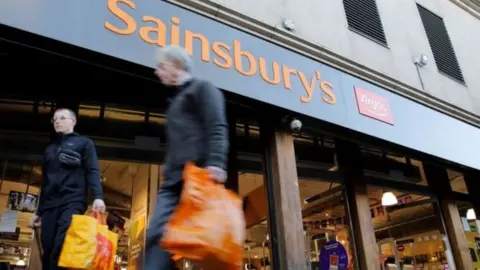Coronavirus: Sainsbury’s boss warns queues set to stay in place
 Getty Images
Getty ImagesSainsbury's says that customers are likely to see disruption to their shopping until September amid the coronavirus pandemic.
Its boss Mike Coupe told the BBC that socially-distanced queues were likely to remain "for the foreseeable future".
In its full-year results statement, the supermarket said it saw huge demand for groceries in March as concerned shoppers stockpiled goods.
Sales growth peaked at 48% in the week to 21 March, but then subsided.
Mr Coupe told the BBC's Today programme that the peak of sales "was crazy".
"We sold more, for five days running, than we would normally sell in our busiest day at Christmas, that's why you saw the gaps on the shelf."

Mr Coupe added that amid the pandemic, the retailer - which is the UK's second-largest supermarket chain - had seen "a very marked change in the way our customers are shopping".
"They're coming less frequently and are buying about twice as much when they do come. Very much a return to the weekly shop, but beyond it."
In the seven weeks to 25 April, the firm's Argos business also saw an uptick in sales of 7%. It said this was down to customers equipping themselves for home working.
Stand-alone Argos stores have been closed since 24 March after the government instructed "non-essential" retailers to shut temporarily, although Argos concessions with Sainsbury's stores remain open.
Coronavirus-related costs
In common with other retailers, Sainsbury's has brought in a number of measures in an attempt to keep customers and staff safe during the pandemic, as well as cope with the surge in demand for food.
They included installing screens at tills, increasing cleaning and recruiting thousands of temporary staff to work in-store, as drivers and in warehouses.
Sainsbury's said that those additional costs, as well as weaker demand for clothing and fuel, could result in a £500m hit to its profits.
 Getty Images
Getty ImagesHowever, the supermarket has also benefitted from a business rates holiday worth about £450m offered to shops in England, Scotland and Northern Ireland. It also expects some of the additional coronavirus costs will be offset by higher grocery sales.
Sophie Lund-Yates, equity analyst at Hargreaves Lansdown said that lockdown had "pushed people down the grocery aisles, and away from the not-so-crucial areas of stores", such as clothing.
"It's a mistake to assume coronavirus is an out-and-out tailwind for supermarkets. Feeding a panicked, locked-down nation comes with extraordinary costs and changes to spending habits," she said.
Sainsbury's comments came as it reported a 2% fall in underlying pre-tax profits to £586m for the year to 7 March.
The supermarket said that it would defer any decisions on paying dividends to shareholders until later in the year.
"At this very early point in our financial year it is impossible to predict the full nature, extent and duration of the financial impact of Covid-19 over the course of the year," it said.

- A SIMPLE GUIDE: What are the symptoms?
- LEADING THE WAY: How California kept ahead of the curve
- ON FRONTLINE: The young doctors being asked to play god
- FACTORY HOTSPOT: The untold story behind America's biggest outbreak
- REASON TO HOPE: The good that may come out of this crisis

